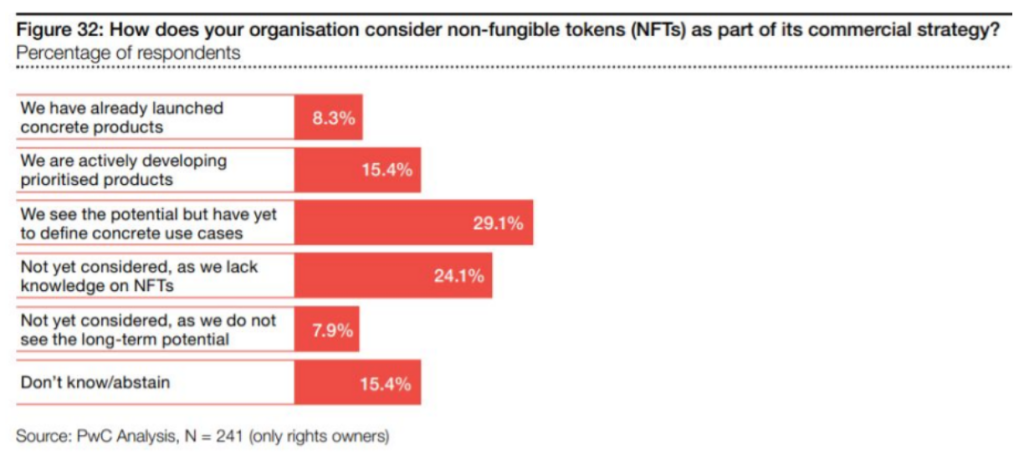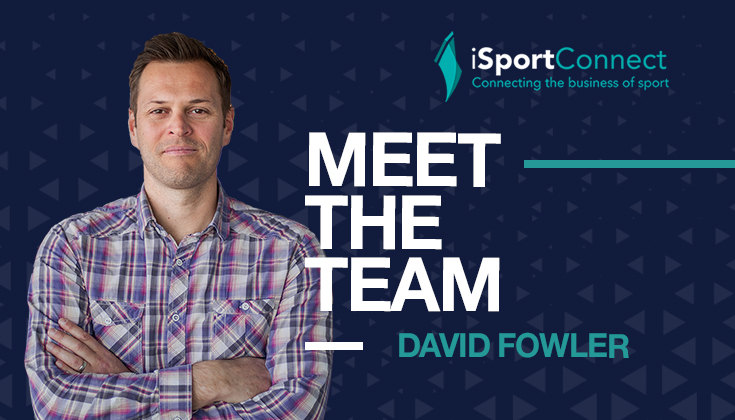Four Strategies Emerge As Sports Rights Owners Size Up The NFT Opportunity
October 18, 2021
It’s early days for the decentralised web or “web 3.0” (the blockchain era) and it’s impossible to predict the impact blockchain technology will ultimately have on the business of sport. What is clear is that the sports industry continues to obsess over non-fungible tokens (NFTs).
If you need a refresher on NFTs and how they fit into the context of blockchain, then read this explainer article.
“It is an understatement to say that, in our experience, it is rare for sports rights owners to take a product-focussed strategy over a commercial-focussed strategy.”
Based on many conversations with rights owners across the iSportConnect community, we in the iSportConnect consulting team see four strategies emerge as sports rights owners size up the NFT opportunity.
Four NFT Strategies For Sports Rights Owners

The most common NFT strategy that we have seen emerging over the past six months is that of the short-term commercial approach. Our assumption is that some in this segment don’t necessarily believe that NFTs (at least in their current fan engagement incarnation) will be around for long and want to generate the maximum amount of income in the shortest possible time (typically two to three years). They look to get the best possible minimum guarantee from any deal.
Certain rights owners feel comfortable enough to enter into longer-term commercial deals. They have a stronger conviction that the current fan engagement-driven NFT phase will last and are open to deals up to, in some cases, as much as eight years.
It is an understatement to say that, in our experience, it is rare for sports rights owners to take a product-focussed strategy over a commercial-focussed strategy. Nevertheless we have spoken to rights owners in our community that prioritise the user experience (and marketing gains) over the immediate commercial gains on offer. Rights owners in these segments generally don’t see NFTs as a sponsorship or a licensing category.
“The rarest of the rare are those with a long-term vision and a product focus. These rights owners have the belief that the NFT opportunity is part of something much bigger.”
Those with a short-term vision and product focus, are looking for NFT partners whose product vision aligns with theirs and with whom they can run proof of concepts (POCs) to find out what works before scaling up to their fan community. The very nature of their short-term focus is based on an openness to the agile way of working (more common seen in the digital-first world of Esports).
The rarest of the rare are those with a long-term vision and a product focus. These rights owners have the belief that the NFT opportunity is part of something much bigger. They are willing to be patient and put more emphasis on finding the right partners with an aligned vision. They are confident that commercial gains will come in time, but don’t have the financial pressures that other rights owners might have.
The PWC Sports Survey 2021 suggests that the majority of sports rights owners have not yet entered the market and in fact over half have either “yet to define concrete use cases” or “lack the knowledge on NFTs”.

This uncertainty is likely only to be counteracted by education and direct experience. Nevertheless, it is not helped by the fact that NFTs in sport have become synonymous with fan engagement use cases (particularly in terms of collectibles and fan voting). This great article, which has been circulating in sports business circles, helps to explain why NFTs are far more than a mechanism to enable fans to engage with their favourite club or athlete. Indeed, NFTs can go way beyond to become the underlying layer of ownership on the web.
None of the strategic directions we outlined above are “wrong”. Every sports rights owner must weigh up their own options and decide which strategy is right for them. What is clear is that we are only at the beginning and the impact of web 3.0 on sport is only going to become more profound.
About iSportConnect’s consulting team
iSportConnect’s consulting team work on a daily basis with a select number of best-in-class companies to grow their business in sport. The team also helps rights owners across the iSportConnect community to navigate the diverse challenges they face, from data and revenue generation to sustainability. The team have worked in some of the sports world’s most influential and innovative businesses including City Football Group, FIFA, Chelsea FC, Millwall FC, Sky, the BBC, Kiswe and Eleven Sports.
To find out how we can help you contact us on info@isportconnect.com



